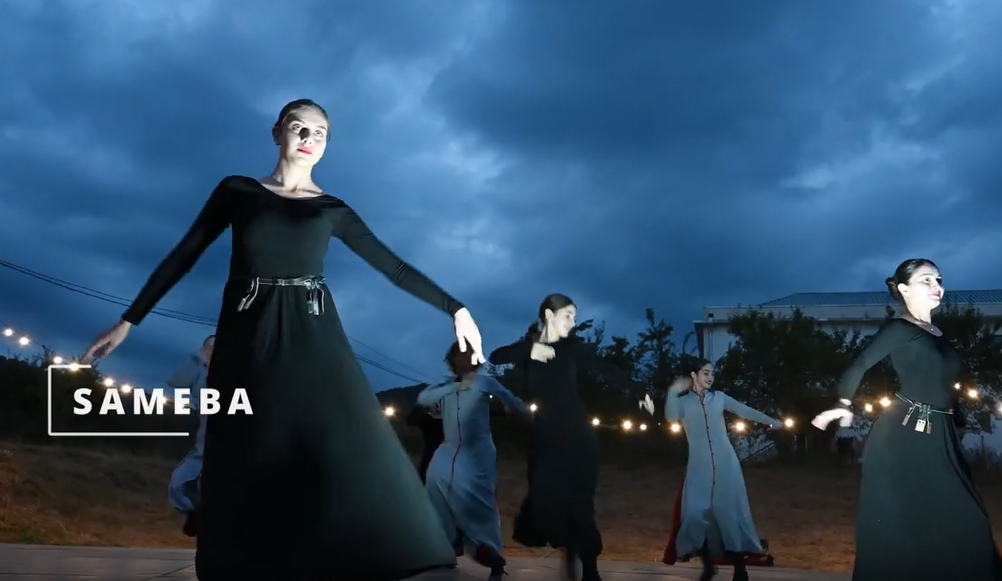The One Caucasus Festival promotes regional unity
Last August, the One Caucasus Festival brought together Armenia, Azerbaijan and Georgia through music, culture and educational and participatory projects. An example of how communities can build a peaceful future together

The-One-Caucasus-Festival-promotes-regional-unity
Dancers at One Caucasus Festival - photo by Onnik James Krikorian
On 22-25 August 2024, the One Caucasus Festival was again held in the Kvemo Kartli region of Georgia. More precisely, the annual event took place in the Marneuli Municipality of the said region better known for its majority ethnic Azerbaijani population and small pockets of ethnic Armenians and Georgians, some co-inhabiting the same villages and towns. The main roads from Armenia and Azerbaijan to the Georgian capital also pass through this region.
Situated close to the border with Armenia and Azerbaijan, One Caucasus promotes collaboration between all three ethnic groups in the wider region and with their peers from elsewhere. Though there are also educational and artistic activities in the surrounding villages, as well as a participatory budget implemented jointly with the local municipality, the festival is best known for its days of music involving acts from Armenia, Azerbaijan, Georgia and beyond.
This year, also marks the tenth anniversary of the event despite the obvious obstacles that have emerged since independence was declared by all three in 1991.
Despite conflict between Armenia and Azerbaijan in particular, the festival has especially proven itself one of the few projects that bring everyday citizens together. Although ethnic Armenians, Azerbaijani, and Georgian residents in Kvemo Kartli are used to interaction on a daily basis, the same cannot be said for their counterparts in Armenia and Azerbaijan. At One Caucasus, however, there are also often musical collaborations between acts from Yerevan and Baku.
This year, two ethnic Armenians from Karabakh, including one who was among the exodus of over 100,000 residents last September, were among over seven volunteers from Armenia itself.
Unfortunately, aside from a few rare examples, current peacebuilding projects instead involve often politically partisan activists or academics and researchers from the two conflicting countries in foreign capitals, sometimes in secret, thus limiting their reach and relevance to the actual societies themselves. This has especially been the case since the demise of the grassroots cross-border Tekali Initiative by the late Armenian peacemaker Georgi Vanyan.
To date, the only time One Caucasus was disrupted was during the COVID-19 pandemic. Undaunted, a smaller group of volunteers and musicians instead accompanied an ambulance where residents could be vaccinated. Though the event remains a minor one, expanding it to include more acts from Armenia and Azerbaijan, as well as from local ethnic Armenian and Azerbaijani communities, nonetheless makes it unique in the region.
Featured articles
- Take part in the survey
The One Caucasus Festival promotes regional unity
Last August, the One Caucasus Festival brought together Armenia, Azerbaijan and Georgia through music, culture and educational and participatory projects. An example of how communities can build a peaceful future together

The-One-Caucasus-Festival-promotes-regional-unity
Dancers at One Caucasus Festival - photo by Onnik James Krikorian
On 22-25 August 2024, the One Caucasus Festival was again held in the Kvemo Kartli region of Georgia. More precisely, the annual event took place in the Marneuli Municipality of the said region better known for its majority ethnic Azerbaijani population and small pockets of ethnic Armenians and Georgians, some co-inhabiting the same villages and towns. The main roads from Armenia and Azerbaijan to the Georgian capital also pass through this region.
Situated close to the border with Armenia and Azerbaijan, One Caucasus promotes collaboration between all three ethnic groups in the wider region and with their peers from elsewhere. Though there are also educational and artistic activities in the surrounding villages, as well as a participatory budget implemented jointly with the local municipality, the festival is best known for its days of music involving acts from Armenia, Azerbaijan, Georgia and beyond.
This year, also marks the tenth anniversary of the event despite the obvious obstacles that have emerged since independence was declared by all three in 1991.
Despite conflict between Armenia and Azerbaijan in particular, the festival has especially proven itself one of the few projects that bring everyday citizens together. Although ethnic Armenians, Azerbaijani, and Georgian residents in Kvemo Kartli are used to interaction on a daily basis, the same cannot be said for their counterparts in Armenia and Azerbaijan. At One Caucasus, however, there are also often musical collaborations between acts from Yerevan and Baku.
This year, two ethnic Armenians from Karabakh, including one who was among the exodus of over 100,000 residents last September, were among over seven volunteers from Armenia itself.
Unfortunately, aside from a few rare examples, current peacebuilding projects instead involve often politically partisan activists or academics and researchers from the two conflicting countries in foreign capitals, sometimes in secret, thus limiting their reach and relevance to the actual societies themselves. This has especially been the case since the demise of the grassroots cross-border Tekali Initiative by the late Armenian peacemaker Georgi Vanyan.
To date, the only time One Caucasus was disrupted was during the COVID-19 pandemic. Undaunted, a smaller group of volunteers and musicians instead accompanied an ambulance where residents could be vaccinated. Though the event remains a minor one, expanding it to include more acts from Armenia and Azerbaijan, as well as from local ethnic Armenian and Azerbaijani communities, nonetheless makes it unique in the region.










